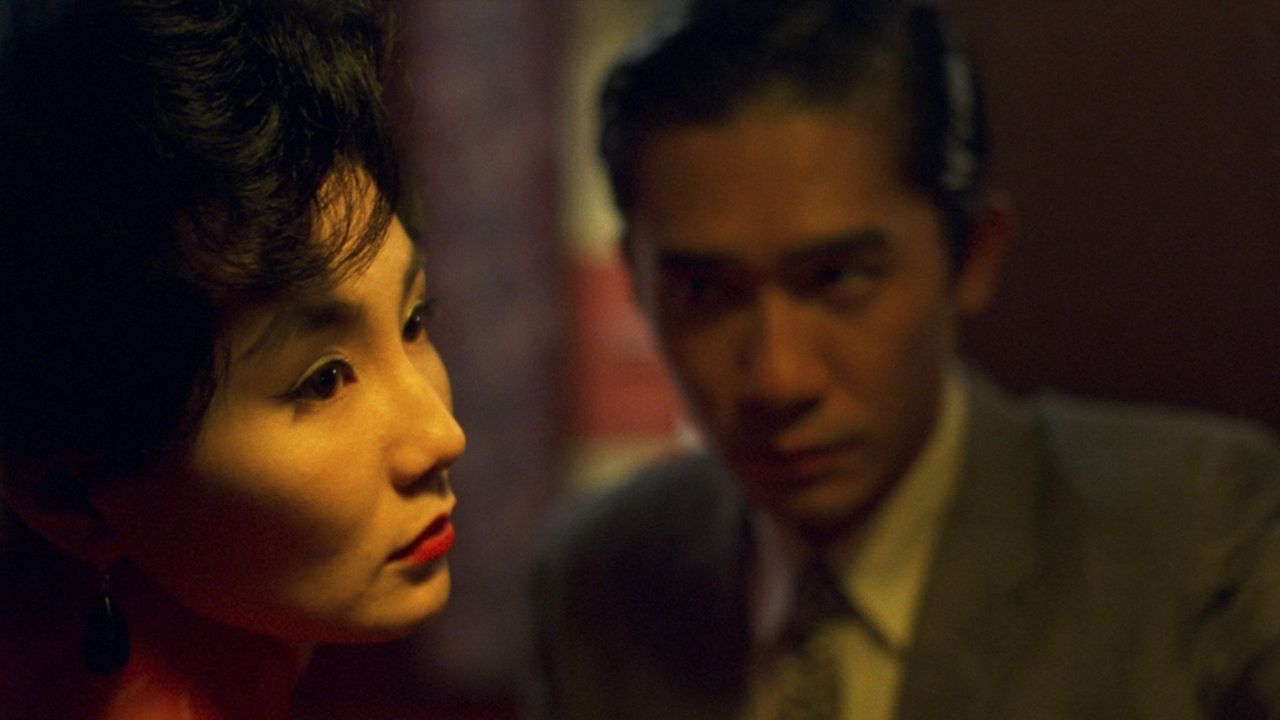25 years later, we are still in the mood for love. A member of the One Million Watched Club, and landing at number 75 (at the time of writing) in the Top 250 Narrative Feature Films list, In the Mood for Love invokes a hushed awe, as if the memory of its sumptuous haze is always waiting to pull us back in. “I remember in college, I smoked my first pack of cigarettes after, and I got so sick on the roof of my Brooklyn apartment,” Rebel Ridge star AnnaSophia Robb laughs, reminiscing about the film for her Four Favorites. “Because I was so moody.” Chris writes that “if you haven’t seen this, you honestly haven’t lived,” and as Hard Truths’ Marianne Jean-Baptiste concludes in her own Four Favorites, as someone who knows a thing or two about secrets and lies herself: “It’s gotta be In the Mood for Love. It’s gotta be Wong Kar-wai, man.”
Perhaps the crowning achievement in the Hong Kong director’s filmography, In the Mood for Love is also known by its Chinese title 花樣年華. The phrase describes the prime of one’s life, literally translating to “flower-like years”—a moment of beauty all the more precious for its impermanence. Flowers bring to mind fragility, too: the instinct to admire from afar, lest grasping them with too much fervor may bruise or break them. Taken from a 1930s pop song by Shanghainese actress Zhou Xuan, it’s a fittingly lyrical title.
In the Mood for Love situates us in 1962 colonial Hong Kong, where Maggie Cheung’s Mrs. Chan and Tony Leung’s Mr. Chow happen to be moving in next door to each other on the same day. Their belongings get mixed up by the movers: cabinets and shoes are borne back and forth along the too-narrow corridor, presaging how the boundaries between both apartments will soon be crossed many times over. Chan and Chow gradually discover their spouses are having an affair, and as this knowledge brings them together, their own feelings for each other begin to bloom, unplanned, unspoken. (For more evidence that good ol’ infidelity is cinematic catnip, check out Megan’s Cheating is Awesome list.)
“We won’t be like them,” Chan says to Chow before leaving one of their chaste rendezvous at a hotel, where they’ve been writing a martial arts serial together. Is it this principled refusal to act like their spouses that frustrates the romance between them, or is it fear of what might happen, what might vanish, if they did? Such is the mystery of In the Mood for Love: it does not call upon us to unravel it but simply to revel in its exquisitely tortured irresolution.


